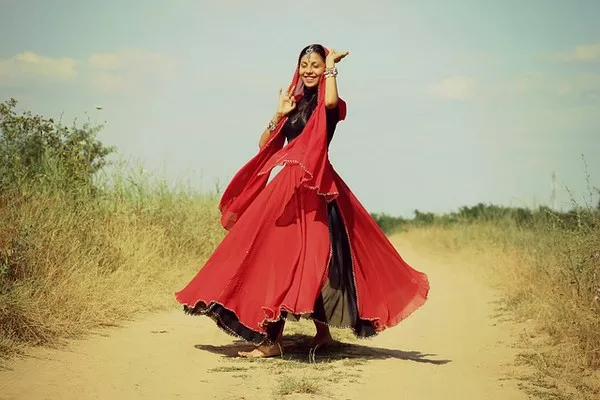In the vast tapestry of American culture, Native American heritage forms a vital thread, rich with tradition, spirituality, and resilience. While mainstream American holidays like Thanksgiving and the Fourth of July dominate the calendar, there are also significant Native American holidays that hold deep cultural and historical significance. These holidays offer an opportunity not only to celebrate indigenous cultures but also to reflect on the complex history and ongoing struggles of Native peoples. In this article, we will explore the diverse array of Native American holidays, their origins, and their relevance in contemporary society.
Understanding Native American Holidays:
Native American tribes across the United States and Canada observe a variety of holidays and ceremonial events throughout the year. These observances often center around seasonal changes, cultural rites of passage, and spiritual practices deeply rooted in indigenous beliefs. While specific holidays vary among tribes, there are some common themes and traditions that unite Native communities in their celebrations.
Powwows:
Celebrating Cultural Identity Powwows are perhaps the most widely recognized Native American gatherings, bringing together tribes from across the continent to celebrate their cultural heritage through music, dance, and storytelling. These vibrant events often feature traditional dances such as the Fancy Dance, Grass Dance, and Jingle Dance, each with its own unique regalia and significance. Powwows serve as important occasions for intertribal connection, cultural exchange, and the passing down of oral traditions from one generation to the next.
National Indigenous Peoples Day:
Recognizing Indigenous Resilience National Indigenous Peoples Day, observed on June 21st in Canada and the United States, honors the diverse cultures and contributions of indigenous peoples across North America. Originally known as National Aboriginal Day in Canada, this holiday provides an opportunity to celebrate indigenous resilience, promote cultural awareness, and recognize the ongoing struggles for justice and sovereignty faced by Native communities. Festivities may include traditional ceremonies, art exhibitions, and community gatherings that highlight the vibrancy of indigenous cultures.
Harvest Festivals:
Honoring the Earth and Ancestral Traditions Many Native American tribes observe harvest festivals as a way to give thanks for the bounty of the earth and honor ancestral traditions tied to agriculture and sustenance. These festivals often coincide with the autumnal equinox and may include ceremonies such as corn dances, feasting, and offerings to the spirits for a successful harvest. By acknowledging the interconnectedness of all living beings and the importance of sustainable stewardship of the land, harvest festivals serve as reminders of indigenous values that prioritize harmony with nature.
Sun Dance:
Renewal and Spiritual Connection Among Plains tribes such as the Lakota, Dakota, and Nakota, the Sun Dance represents a sacred ceremony of renewal, healing, and spiritual connection. Held during the summer months, the Sun Dance involves rigorous physical and spiritual preparations, including fasting, purification rituals, and the construction of a ceremonial arbor. Participants dance for hours on end, often enduring physical pain as a means of offering sacrifice and seeking visions for the benefit of their communities. The Sun Dance embodies themes of sacrifice, perseverance, and interconnectedness with the natural world.
Day of Mourning:
Remembering Indigenous Resilience While many American holidays celebrate notions of freedom and prosperity, Native American communities also observe days of mourning to acknowledge the ongoing injustices and traumas inflicted upon indigenous peoples throughout history. The National Day of Mourning, held annually on Thanksgiving Day in Plymouth, Massachusetts, serves as a counter-narrative to the traditional Thanksgiving narrative and provides a space for indigenous voices to speak out against colonization, racism, and systemic oppression. Through ceremonies, speeches, and educational events, participants honor the resilience of Native ancestors while calling for justice and reconciliation.
Potlatch:
Sharing Wealth and Building Community Originating among the Indigenous peoples of the Pacific Northwest, the potlatch is a ceremonial gathering characterized by feasting, gift-giving, and the redistribution of wealth. Potlatches serve as occasions for fostering social bonds, expressing generosity, and asserting status within indigenous societies. While historically suppressed by colonial authorities for its perceived extravagance and defiance of capitalist norms, the potlatch has experienced a resurgence in recent decades as indigenous communities reclaim and revitalize their cultural traditions.
Conclusion
Native American holidays offer a window into the rich tapestry of indigenous cultures, spirituality, and resilience that have endured for millennia despite centuries of colonization and oppression. By recognizing and celebrating these holidays, we not only honor the diverse heritage of Native peoples but also confront the legacies of colonialism and work towards a more just and equitable future for all. As we navigate the complexities of American identity, let us strive to uplift indigenous voices, support indigenous-led initiatives, and build bridges of understanding and solidarity across cultures and communities.
Related topics:
The Most Popular US Public Holidays

